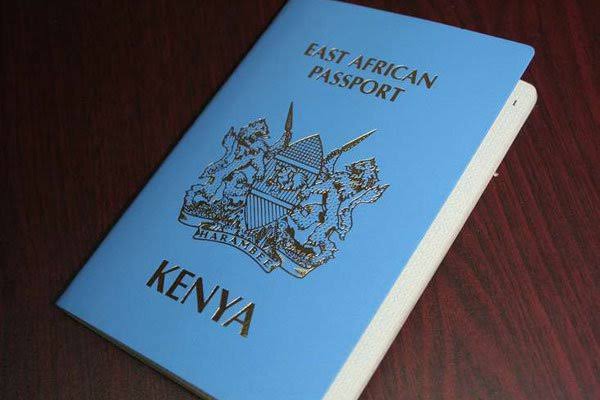The Kenyan passport has witnessed a notable decline in the latest Henley Passport Index, tumbling to the 11th position among African nations and plummeting to 132nd globally in the first quarter of 2024, marking a stark contrast from its ranking at 67th in the third quarter of 2023.
Despite maintaining its lead in East Africa, with visa-free or visa-on-arrival access to 76 countries, Kenya's passport has faced a challenging global landscape. While it continues to outperform its regional counterparts, its standing has slipped significantly compared to previous years.
Rwanda and Tanzania closely trail Kenya in East Africa, ranked 12th and 14th respectively, indicating a competitive regional environment. However, on a global scale, countries like France, Germany, Italy, and Spain dominate with considerably broader visa-free access.
Seychelles and Mauritius continue to lead among African countries, with their passports ranking 39th and 40th respectively, although experiencing a decline from their previous positions due to their extensive visa-free access.
Additionally, South Africa, Botswana, Namibia, Lesotho, and Eswatini have also surpassed Kenya in the 2024 rankings, highlighting the evolving dynamics of passport power in facilitating global mobility.
The Henley Passport Index, which evaluates visa-free access to 227 travel destinations worldwide, underscores the shifting fortunes of countries in enabling global mobility for their citizens.
Kenya's economic mobility score, standing at 5.52 per cent, reflects the number of countries accessible to Kenyan passport holders without a visa or with visa-on-arrival arrangements. While modest, this score underscores the intricate relationship between passport power and economic opportunities on the continent.
The decline in the Kenyan passport ranking coincides with challenges faced by citizens in acquiring passports, alongside the government's introduction of a new visa regime, aiming to streamline entry procedures into the country through the Electronic Travel Authorisation (eTA) announced by President William Ruto in December.
Economic mobility is crucial for fostering access to international markets and investment opportunities, with passport power playing a pivotal role in facilitating such access. For African countries like Kenya, passport strength goes beyond mere travel facilitation; it is a gateway to economic engagement on the global stage, emphasizing the need for continuous efforts to enhance mobility and economic opportunities for citizens.

